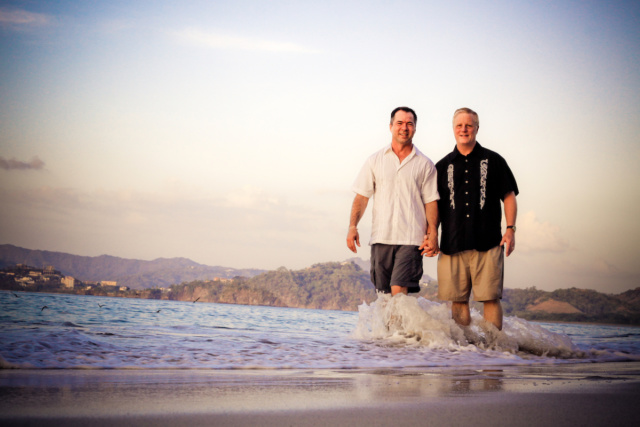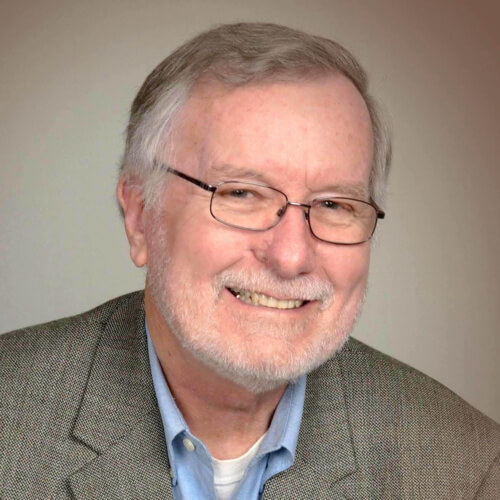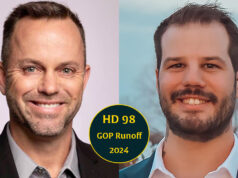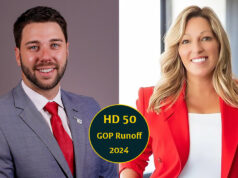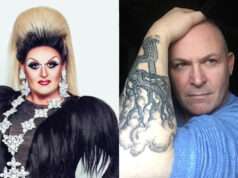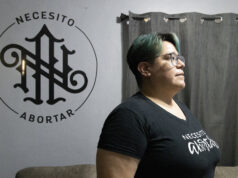
(Editor’s note: The following excerpt is taken from Accidental Activists: Mark Phariss, Vic Holmes, and Their Fight for Marriage Quality in Texas. It has been edited lightly for style. The full book is available for purchase here.)
Though he grew up in Oklahoma where conservative values seep from the ground like oil, Mark Phariss caught a break early on. His mother was deeply religious — she rose before dawn to read the Bible, saw to it that Sunday school and services were a regular part of her children’s lives — but by the time Mark was old enough to remember, his parents had joined St. Paul’s Methodist Church, a progressive congregation whose young, educated minister, the Rev. John Reskovac, preached an enlightened version of Christianity.
The fundamentalist threats of hellfire and damnation that darkened the lives of so many gays and lesbians born in the Sooner State did come into Mark’s life at the annual revivals to which his mother took the children, but she was always careful to temper the fiery preachers they heard there with her own more humane vision. When at the age of 12 Mark and his twin sister, Marsha, spread the word to children in the neighborhood that they were sinners bound for hell, their mother quickly put a stop to their misguided evangelism. You’ll bring more people to Christ, she told them, by the way you live your own lives and treat others than you will by threatening them with damnation. The lesson his mother taught that day Mark never forgot.
And yet, the anti-gay message found its way eventually into his head, seepage from the general culture. Mark was just a few months shy of his 14th birthday when in October 1973 the local paper, the Lawton Constitution, reported on a study by Eugene Leivitt and Albert Klassen on attitudes toward homosexuality — and what he read disturbed him. Two-thirds of those surveyed considered homosexuality “very obscene and vulgar”; almost 50 percent saw in homosexuality “a corruption that can cause the downfall of a civilization.” Fully a third thought homosexuals should be jailed. Though the minister at St. Paul’s was enlightened, Mark knew that in 1972 the larger church had added a new line to its Book of Discipline. “The practice of homosexuality,” it read, “is incompatible with Christian teaching.”
‘I was wracked by guilt’
When friends from school stayed the night in Mark’s early years, or when he stayed with friends, they would occasionally experiment sexually. “Each time I had physical contact,” Mark remembers, “I was wracked with guilt. Even when there was no physical contact, I was wracked by guilt because I wanted it so badly.”
Born into a world in which he was ill-equipped to live, Mark suffered at night, alone with his thoughts. “Late at night, in bed by myself, I’d cry myself to sleep. I’d pray for God to make me straight or, if He couldn’t, to take me in my sleep.” Like many another trapped between worlds, he thought of taking his own life. But though his prayers went unanswered, he somehow turned away from death. “Each morning I’d wake up, still very much alive, still very much attracted to men.”
Through high school, through college, through law school and beyond, Mark was painfully aware that he would be ostracized were anyone to discover, even to suspect, that he was gay. He struggled to maintain a double life, perpetually guilty of bad faith, of denying who he was. When a few beers at a pool party in the summer between his eighth- and ninth-grade years led to co-ed streaking across nearby fields, he worked hard to disguise the fact that he was more interested in the boys running next to him than the girls. In high school, he kept his interest in men under a tightly fitted cover made possible by occasional dates with young women. Offers of sexual favors from a few who wanted to draw his attention went unanswered. Though he carefully perpetuated the illusion that he was interested in girls, his seeming interest extended no further than a polite good-night kiss.
A friendly face
Ever more aware that his sexual orientation set him apart from his classmates, Mark realized as a teenager that cultural warnings to the LGBT community were flying thick and fast. Classes had barely begun in the fall of 1975 when he pulled the Sept. 8 copy of Time from the mailbox and found himself face to face with Leonard Matlovich, the first openly gay man ever to appear on the cover of a national magazine. Celebrated in the LGBT community for challenging the ban on gays in the military, Matlovich was discharged from the Air Force a month later. For four years, appeals kept the case alive until, in September 1980, he accepted a cash settlement — and the case was still very much on Mark’s mind as he filled out college applications. Worried about money, his father urged him to join an ROTC program to help with expenses. Worried about being dishonorably discharged, about being tossed into a jail at Fort Leavenworth, about never being able to find a job, Mark refused — joking defensively with his father about what a terrible soldier he would make, inclined as he was to ask “why?” when told what to do.
Just a year and a few months after the Leonard Matlovich story broke, Mark was knocked on his heels again by Anita Bryant’s vicious Save Our Children campaign in Florida. As the 60s gave way to the 70s and the counterculture spread across the country, as the sexual revolution changed behaviors, the LGBT community in Miami had found itself less and less marginalized.
Until, that is, January 1977 when the Dade County Commission passed an ordinance prohibiting discrimination in employment, housing, and public services based on sexual orientation and the Reverend William Chapman, pastor of the Northwest Baptist Church, railed against it from the pulpit, rallying the congregation to bring a quick end to the Age of Aquarius. Chosen to lead the opposition, Bryant set out to convince voters by whatever means, fair or foul, that homosexuals were immoral, promiscuous, and specifically, an immediate danger to children.
“If homosexuals are allowed to change the law in their favor,” she asserted in a classic attempt to create guilt-by-association, “why not prostitutes, thieves, or murderers?” And again, “Some of the stories I could tell you of child recruitment and child abuse by homosexuals would turn your stomach.”
Ordinances repealed nationally, Oklahoma digs in
The anti-discrimination ordinance in Dade County was repealed in June, a reversal approved by an overwhelming majority of voters; the repeal of similar protective ordinances in St. Paul, Minnesota; Wichita, Kansas; and Eugene, Oregon, followed. Seventeen-years-old, a soon-to-be high school senior living in Lawton, Oklahoma, Mark watched in horror, realizing that Anita Bryant’s hate had sprung from roots in the home state they shared. He shuddered anew in January 1978 when Mary Helm, a state senator, brought the lies on which the Save Our Children campaign was founded to Oklahoma. Determined to drive gays and lesbians from public school classrooms, she introduced a bill that that would allow administrators to refuse to hire or to fire teachers for “advocating, soliciting, imposing, encouraging or promoting public or private homosexual activity.” Helm’s bill passed by overwhelming margins — 88 to 2 in the House of Representatives, unanimously in the Senate — and was quickly signed into law.
“It was a very frightening time for me,” Mark recalled nearly 40 years later. “Seventeen years old and living in Oklahoma, to realize that I was gay in a society that did not accept me. The only sensible thing to do seemed not to be gay.”








